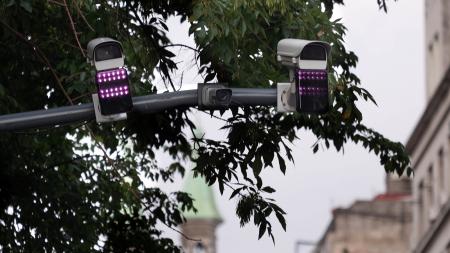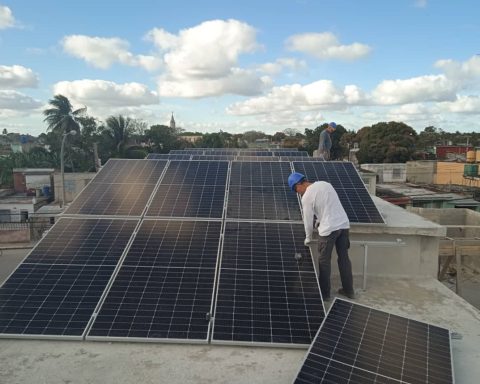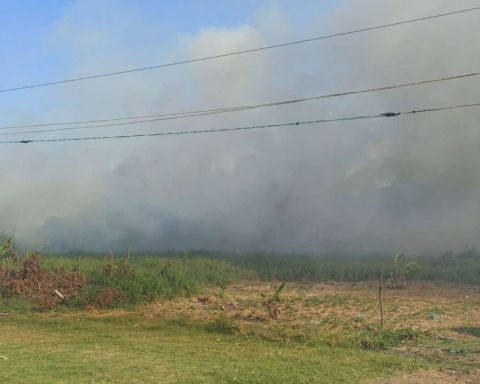The 513 deputies and 27 senators elected in October 2022 will be sworn in this Wednesday (1st) in Brasília. After taking office, the board of directors of the Chamber of Deputies and the Federal Senate will be elected. 
The table is responsible for directing the legislative work and administrative services of each of the houses. Among its attributions is the enactment of amendments to the Constitution by the Chamber and Senate. The board of directors is composed of the presidency (president and two vice-presidents) and the secretariat – formed by four secretaries and four alternates.
Chamber
The federal deputies will take office in session at 10 am, in the Ulysses Guimarães plenary. In the afternoon, at 4:30 pm, the session will begin to elect the new mayor and board of directors for the 2023/2024 biennium.
According to the bylaws, the party blocks determine the composition of the table. The larger the block, the greater the number of positions. The positions are distributed among the parties that are part of each bloc. If they prefer, the parties can act alone, without being part of any bloc.
The progress of elections is coordinated by the oldest deputy with the most legislatures. Voting will only start when there are at least 257 deputies in the plenary.
The calculation is carried out by position, starting with the president of the Chamber. To be elected, the candidate needs an absolute majority of votes in the first round or to be the most voted in the second round. After the election of the new president, the votes of the other members of the board of directors will be calculated: two vice-presidents, four secretaries and four substitutes.
Senate
With the renewal of a third of the vacancies of the 81 senators, the new congressmen take office at 3 pm, in the plenary. The terms are eight years and run until February 2031. Among those sworn in, five were re-elected: Davi Alcolumbre (União-AP), Omar Aziz (PSD-AM), Otto Alencar (PSD-BA), Romário (PL-RJ ) and Wellington Fagundes (PL-MT).
Another four were appointed as ministers in the Lula government: Camilo Santana (PT-CE), Minister of Education; Flávio Dino (PSB-MA), from Justice and Public Security; Renan Filho (MDB-AL), from Transport; and Wellington Dias (PT-PI), from Social Development, Assistance, Family and Fight against Hunger.
According to the Constitution, the parliamentarian who assumes the position of minister does not lose his mandate in the National Congress. Soon after being sworn in as senators, the four must return to the ministries and leave the chairs with the alternates of each plate.
Camilo Santana has Augusta Brito (PT) and Janaina Farias (PT) as substitutes. In the case of Flávio Dino, the substitutes are Ana Paula Lobato (PSB) and Lourdinha (PCdoB). Wellington Dias chair should go to Jussara Lima (PSD) or José Amauri (Solidariedade). Renan Filho’s substitutes are Fernando Farias (MDB) and Adélia Maria (PV).
Activities for the election of the Senate’s board of directors will begin at 3:00 pm, with the first preparatory meeting in which the senators to be sworn in give a regimental commitment, without speech. According to the secretary general of the Senate table, Gustavo Saboia, the forecast is that the vote will be in person.
After the inauguration, around 4 pm, the second preparatory meeting for the election of the President of the Senate begins. The mandate of the president, who is also responsible for the Presidency of the National Congress, is two years.
Candidates for office defend their proposals on the tribune and shortly afterwards a secret ballot is held. Senators are called to vote according to the order in which states are created, just as it happens when congressmen take office.
So far, two candidates are officially running for office: the current president, Rodrigo Pacheco (PSD-MG), and Rogério Marinho (PL-RN). Whoever obtains an absolute majority of votes, that is, 41, will be elected. If no candidate receives this support, which never happened, the two most voted will go to a second round.
Once the voting is concluded, the third preparatory meeting begins, for the election of the other positions on the table – first and second vice-presidents and four secretaries, with their respective substitutes.
Safety
This year, the resumption of legislative work will include increased security due to acts of vandalism – on January 8th – which caused material damage to the National Congress estimated at between R$ 3 million and R$ 4 million, according to estimates by the Senate.
The Esplanada dos Ministérios will have vehicle traffic interrupted. Only public servants, authorities and guests will be able to access the space, with credentials controlled by public servants of Organs responsible bodies. Emergency response and firefighting teams will work on site and there will be reinforcements in the number of police stations.
The Esplanada region will be monitored by the security forces of the Federal District through images from cameras, drones and information sent to the Integrated Operations Center of Brasília (Ciob).
According to the Secretariat for Public Security of the Federal District (SSP/DF), access to the area with white weapons or sharp objects, glass bottles and cans, flag poles, barbecue skewers, laser pointers and the like, toy weapons , replicas or simulacra, tents, tents, stoves and the like, fireworks and explosive artifacts, electric or sound shock devices (such as megaphones), flammable substances, illicit drugs or any other materials that endanger the safety of people and the patrimony. It will not be allowed to access the area with animals, except guide dogs.
The use of drones in the Esplanada region will also be prohibited, except for security forces and authorized ones. Policing actions include strengthening security at Metro-DF, Bus Station and Brasília International Airport stations and increasing staff at police stations.
Resumption of activities
On Thursday (2), at 3 pm, there will be the solemn opening session of the legislative year. The ceremony is marked by the reading of a message from the President of the Republic, with the perspectives for the Chamber and Senate in relation to the processing of proposals considered priorities by the Executive Branch.
The message is taken to Congress by the Chief Minister of the Civil House or personally by the President of the Republic. On the occasion, messages from the Judiciary Powers will also be read, taken by the President of the Federal Supreme Court (STF), and from the Legislative Powers, read by the President of the Congress. There may also be a message from the President of the Chamber of Deputies.
*With information from the Chamber and Senate agencies
















